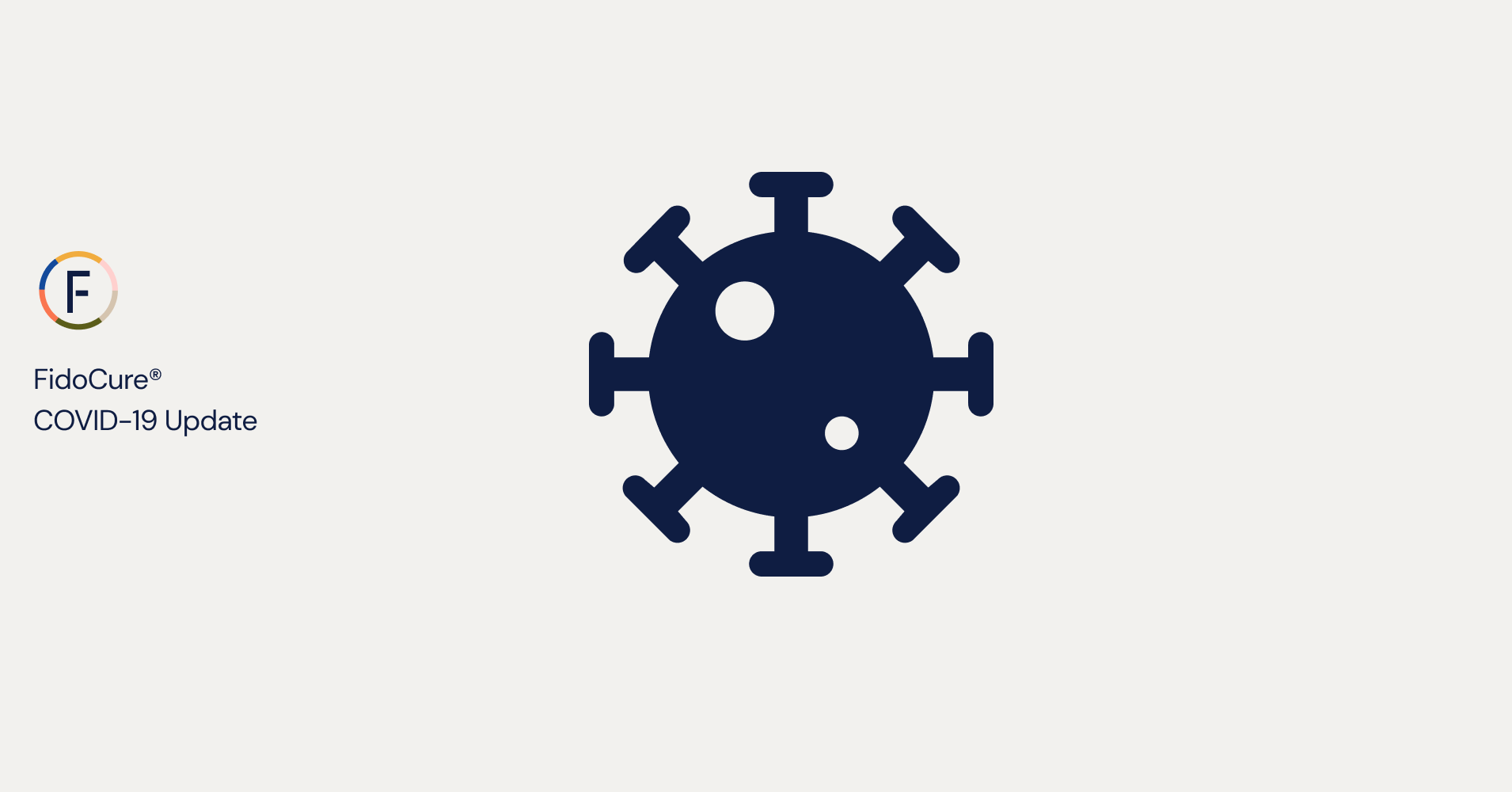Mental Health in the Veterinary Community in the Age of COVID-19
Mental health for veterinary professionals can be a challenge in the best of times and even more so during the stressful COVID-19 pandemic. Many of us are concerned with keeping our teams mentally healthy and happily engaged.
In the seventh webinar of this series, we welcome Dr. Carrie Jurney, DVM, DACVIM (Neurology), President of Not One More Vet, a non-profit supporting the mental health of veterinary professionals. She highlights the history of mental health in the veterinary community and delves into its effects during the global pandemic. Dr. Jurney discusses best practices and potential solutions, and provides answers to some of your most asked questions.
It’s evident there’s a lot of uncertainty in the world right now, and everyone from veterinary technicians to oncologists are affected. Can we start with a background on the mental health issue in the veterinary profession?
Mental health issues in veterinary medicine aren’t new; they’re just being talked about more now. Consistently, there are higher rates of anxiety and depression, as well as elevated suicide rates among veterinarians; suicide rates are up to five times higher among male veterinary technicians. Unfortunately, there has not been enough work done to research mental health among support staff.
People who enter into “helping” fields tend to have some personality traits that might not serve them well, besides their wealth of good traits. Dr. Elizabeth Strand, a social worker with the “Vet Social Work Project”, found that veterinarians are on average more neurotic than the normal population. This isn’t a big deal as long as they’re “tending the mental garden”, but this often falls to the wayside.
Vet students, compared to other high achievers, are even greater perfectionists.
Tough work environment: long hours, without breaks, really take their toll.
- 30% of veterinarians take less than a week of break throughout the year.
- 80% of veterinarians don’t have a regularly scheduled lunch break.
- Veterinarians average 10-11 hour days.
Finally understanding the concept of “moral distress”: being prevented from doing the thing you feel is right, that you’ve been trained to do, because of external circumstances, takes a major toll on your mental health. For example, financial limitations to care: veterinarians all have reckoned with the familiar story of wanting to treat a patient whose owners can’t afford treatment. Studies have shown that 53% of vets face this every day.
Unhealthy work practices and cultures are unintentionally being built from the top down as veterinarians work too hard and their staff emulate it.
It can be hard to find support, and often doctors and staff don’t feel like they can burden each other with issues.
NOMV online support is very helpful! While its mission has expanded since its inception, it remains an important resource for veterinary professionals, where they can talk freely about the issue they face.
Often, veterinary professionals feel underappreciated - but links between these personality traits and worsening mental health have not been established scientifically. Only 50% of veterinarians with serious and diagnosable mental health distress reach out to mental health professionals.
How has COVID-19 affected the mental health of veterinarians?
The WHO put out a bulletin noting that the next pressing concern in these times is worldwide mental health.
NOMV’s recent polls show that mental health among veterinarians is worsening.
- 67% of veterinarians and 49% of staff say their mental health is worse during the pandemic.
Creating online forums where people can come together to share experiences and get a sense that “we’re all dealing with this” is a true help.
What can the broader veterinary community be doing to help improve mental health among its members?
Veterinarians are all giving people and “fixers”, often leading to a lack of care for the self. Basic self-care like eating, exercising, and sleeping can’t be optional.
After personal care, reaching out to local networks is key. It’s important to call out coworkers and friends in the veterinary community who aren’t taking care of themselves.
Instrumental social support - it’s likely that you’ve experienced the same thing many veterinary community members are going through, and offering this lived experience as support is important.
Owners and administrators of practices need to talk about and not ignore the importance of this issue. Can you talk about how the consolidation of veterinary medicine into larger organizations has either helped or hindered the discussion of mental health in the industry?
Organizations like Banfield actually have excellent mental health infrastructure and have opened up new conversations.
The local management is what makes or breaks a hospital, regardless of overriding corporate structure, and so it’s very difficult to determine whether the corporate industry has changed anything as a whole. Most of the problems in this industry are veterinary problems, not corporate or private-ownership problems.
Mental health issues affect all of us.
What should we be on the lookout for in terms of mental health issues when we arrive at the “new normal”?
Our old world has been irrevocably changed, and we don’t know what the future will look like - that uncertainty in itself is exceptionally difficult.
This uncertainty allows everyone the opportunity to “rebuild normal” - a huge positive. As an example, everyone has been flirting with the use of telemedicine for years, and suddenly now it’s come to the forefront in a positive way. Hopefully, the new normal can include more honesty about mental health, both on a personal and social level.
- It’s okay not to be okay.
- Trust your gut.
- Check on your colleagues.
If you’re interested, you can take training courses on the internet from the QPR Institute on crisis intervention (https://qprinstitute.com/). AVMA members get free access. Veterinary professionals already have very difficult conversations every day without even blinking. Why can’t mental health conversations be part of this?
Is admitting mental health issues a career liability?
Generally, no.
Mental health professionals are medical caregivers, and their advice for you should be heard by your administrators. If your job isn’t one where you feel comfortable discussing your mental health - find a new job! There are currently more jobs than vets.
Recommended book: Crucial Conversations by Kerry Patterson, Joseph Grenny, Ron McMillan, and Al Switzler
Find the right space to discuss your problems - maybe not in the hallway.
Who suffers the most from mental health issues in the veterinary profession?
It’s important to avoid the “competitive suffering Olympics”. If anybody’s suffering at all, that’s a problem. The data will certainly show that some groups are reporting more stress than others, but that doesn’t really matter because the veterinary profession as a whole reflects issues from any one group.
Are there resources for dealing with clients who are struggling mentally?
- Crucial Conversations book!
- Self-care leads to better and healthier conversations!
- Less conflict in the exam room helps eliminate moral distress and makes sure the pet gets the best care, too!
How have you supported your staff as COVID-19 has developed?
The most impactful thing has been holding a meeting to discuss what’s NOT going well. Having a feedback system is extremely helpful and creates a better, healthier office culture.
Compensation currently drives performance at least to some degree, but it’s important to also have a strong value structure established.
Who can use NOMV, and what are the benefits besides discussion groups?
There are three different NOMV groups - one for veterinarians, one for support staff, and one for students. Anyone in the veterinary profession in any English-speaking country, as well as Spain, Singapore, and others can access NOMV. A full list is available on the website.
Notable Comments from Attendees:
Christy Schwartz
“Owners and administrators of practice need to talk about it, not ignore that this is something that needs to be handled during personal time.
I think it’s important to be sincere. Ask if you are ok, and then be ready to listen. If you are not the type of person that can handle someone else’s concerns, know your resources.
I think those hard conversations are the difference between a stranger and the vulnerability with someone you know, and have to face day after day.”
Vera Heidolph, DVM, MIM
“I think part of the problem of suboptimal camaraderie amongst vets starts in vet school with severe competition and ends in private practice where owners pit vets against each other for ‘production.’
"After being a vet for 17 years, I think the hardest part is how many patients we will lose over time. This loss is very tough on the soul. My heart especially goes out to oncologists! I can't imagine how hard their job must be. I would fall apart every day.”
Important Links
To join Not One More Vet’s support groups, please find the right group for you on facebook and click join.
- For Veterinarians https://www.facebook.com/groups/NOMVet
- For Vet Students: https://www.facebook.com/groups/NOMVStudents/
- For Vet Team Members: https://www.facebook.com/groups/NOMVSupportStaff/
NOMV works with betterhelp.com to give veterinarians access to online mental health care. Any NOMV member can access it at https://www.betterhelp.com/nomv/ and obtain a free month.
NOMV has an education program that’s currently growing. Information is disseminated through online groups as well as at conferences.
- To apply for Not One More Vet’s grant program: https://www.nomv.org/grant-application/
- Another free online resource: CE about wellness: www.MightyVet.org


